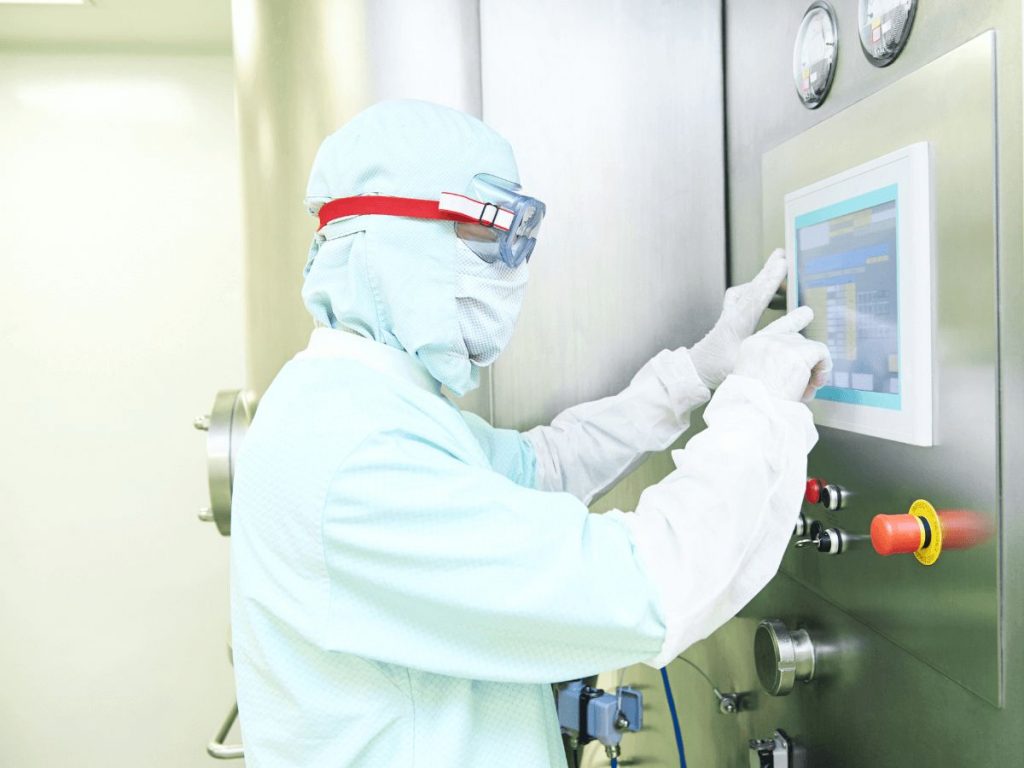In the world of pharmaceuticals, where even the slightest error can have profound consequences, adhering to stringent quality standards is paramount. This is where Good Manufacturing Practice (GMP) steps in, serving as the bedrock of quality assurance and regulatory compliance in the pharmaceutical industry.
The Importance of GMP in Pharmaceuticals
Pharmaceutical production is an intricate procedure that encompasses complicated procedures, raw materials, and specialized equipment. The importance of GMP resides in its capacity to guarantee that each stage of the manufacturing process, starting from sourcing raw materials to distributing the end product, complies with established quality
norms. GMP safeguards patient safety, product efficacy, and public health.
Core Principles of Good Manufacturing Practice
Quality Management
At the heart of GMP is a robust quality management system. Pharmaceutical companies must establish and maintain procedures that monitor and control every aspect of the manufacturing process. This includes meticulous testing of raw materials, strict process
validation, and thorough inspection of the final product.
Risk Assessment
The pharmaceutical industry is not without its risks. GMP emphasizes the importance of identifying potential risks and hazards associated with the manufacturing process. Manufacturers can implement preventive measures to mitigate these risks and ensure product safety by conducting comprehensive risk assessments.
Documentation and Record-Keeping
Detailed documentation and record-keeping are fundamental to GMP compliance. Every step must be documented and maintained for inspection, from ingredient measurements to equipment calibration. This helps in tracking the manufacturing process but also aids in identifying deviations and implementing corrective actions
promptly.

Implementing GMP in Pharmaceutical Manufacturing
Implementing GMP requires a concerted effort from all levels of the pharmaceutical company. Each aspect contributes to maintaining the highest quality standards, from designing facilities that meet GMP requirements to training staff on proper procedures.
Benefits of GMP Compliance for Pharma
GMP compliance offers a range of benefits for both pharmaceutical companies and consumers:
• Ensuring Product Quality: GMP-compliant manufacturing processes result in consistent quality and efficacy products.
• Patient Safety and Efficacy: GMP prevents contamination, cross-contamination, and errors, ensuring patient safety and therapeutic effectiveness.
• Regulatory Compliance: Adhering to GMP is a commitment to quality and a regulatory requirement for pharmaceutical companies.
Challenges Faced in GMP Implementation
Implementing GMP is not without challenges:
• Complex Regulations: Navigating intricate and evolving regulations requires constant vigilance and expertise.
• Evolving Technology: The integration of advanced technologies demands continuous training and adaptation.
• Training and Education: Ensuring all staff members are well-versed in GMP principles can be challenging.
Steps to Achieve GMP Compliance
To achieve GMP compliance, pharmaceutical companies must:
• Facility Design and Equipment: Ensure facilities are designed to prevent contamination and incorporate state-of-the-art equipment.
• Process Validation: Rigorously validate manufacturing processes to ensure consistent product quality.
• Quality Control and Assurance: Implement stringent quality control measures and adhere to established procedures.
Bursting the Myths: Common Misconceptions About
GMP Misconceptions about GMP include:
• GMP is Optional: GMP is not a choice; it’s a mandatory requirement to ensure quality and safety.
• Applicable Only to Large Companies: GMP is relevant for companies of all sizes, regardless of their scale of operations.
• Static Regulations: GMP regulations evolve to align with industry advancements and emerging risks.
Conclusion: Commitment to Excellence in Pharma
Manufacturing
In the ever-evolving landscape of pharmaceutical manufacturing, GMP stands as a beacon of quality and safety. By embracing GMP principles, pharmaceutical companies pledge their dedication to producing safe, effective, high-quality products that enhance and safeguard lives.
Q1: Is GMP compliance mandatory for all pharmaceutical companies?
A: Yes, GMP compliance is a regulatory requirement for all pharmaceutical companies to ensure product quality and patient safety.
Q2: How often should GMP training be conducted for staff?
A: GMP training should be conducted regularly, with refresher courses as needed, to ensure staff are up to date with current regulations and procedures.
Q3: Can GMP compliance help prevent product recalls?
A: Absolutely. GMP-compliant processes minimize the likelihood of errors and
deviations, reducing the risk of product recalls.
Q4: Are GMP regulations consistent globally?
A: While the core principles of GMP are consistent, specific regulations may vary from country to country.
Q5: How does GMP contribute to patient safety?
A: GMP ensures that pharmaceutical products are manufactured, tested, and
distributed under controlled conditions, minimizing the risk of contamination and
ensuring patient safety.
